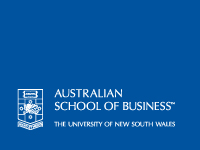|
||||||||||||||||||||||||||||||||||||||||||||||||||||||||||||||||||||||||||||||||||||||||||||||||||||||
| Economics/Arts - 3526 | ||||||||||||||||||||||||||||||||||||||||||||||||||||||||||||||||||||||||||||||||||||||||||||||||||||||

The Australian School of Business in conjunction with the Faculty of Arts and Social Sciences offers the combined Bachelor of Economics/Bachelor of Arts (BEc/BA).
This is a five year program combining the strengths and flexibility of each single degree program. It is expected that these combined degree program will appeal to students wanting, in particular, a strong, focused and highly regarded business program that is complemented by a humanities discipline - chosen out of personal interest or with a particular career objective in mind. With approval, students with an excellent academic record may also enrol in an additional Honours year in the Bachelor of Economics degree. Program Objectives and Learning Outcomes Bachelor of Economics
The objective of the Bachelor of Economics (BEc) program is to train professional economists. It is designed to develop a sophisticated understanding of the theoretical and empirical methods that constitute the modern academic discipline of economics, and to expose students to a number of applied fields within the discipline. Our graduates work as professional economists in government, international agencies, private firms and consultancies. They develop analytical and statistical skills which have wide application in the business sector in general. Bachelor of Arts
An Arts degree is a pathway through a wealth of knowledge in the humanities and social sciences. Its objective is to stimulate students intellectually; to immerse them in worlds of learning; and to graduate them as citizens with strong written and oral communications skills, the capacity to research, criticise and reflect, and the ability to work independently and collaboratively. This is a five year (240 units of credit (UOC)) degree programs. The Bachelor of Economics/Bachelor of Arts program consists of 22 Business courses (132 UOC) and 18 Arts and Social Sciences courses (108 UOC). Students will typically enrol in 48 UOC per year; 4 Business courses (24 UOC) and 4 Arts and Social Sciences courses (24 UOC) each year.
These units will be made up of 6 core courses of 36 UOC
PLUS
AND
OR
*A double major from Economics, Econometrics or Economic History is 36 UOC after the core courses ECON1101 and ECON1102 have been completed. For Financial Economics, 42 UOC are required as the core courses are not included as part of this major.
AND
Students are unable to take a modern language as a major stream.
*Number of free options may vary depending on major combination undertaken. The remaining Business course or credit requirements not required for a major sequence and not Year 1 core courses, as prescribed, if any, may be chosen from any other courses offered by the Australian School of Business.
Please contact the Business Student Centre for further information. Honours level study is available. Students interested in studying at Honours Level should refer to the relevant Honours plan record for entry requirements.
Rules Relating to the Bachelor of Economics Component
Rules relating to the award of the degree of Bachelor of Economics shall apply wherever relevant to students enrolled in the combined Bachelor of Economics/Bachelor of Arts. Please refer to the Program Structure for the academic requirements relating to this program. Students are advised to consult the Academic Rules relating to the Bachelor of Economics program (3543) for further information. Rules Relating to the Bachelor of Arts Component 1. Of the 108 units of credit in Arts and Social Sciences required for the combined degree: (a) none may be from courses outside the Faculty of Arts & Social Sciences (b) at least 24 and no more than 36 units of credit must be obtained in Level 1 courses, including no more than 12 Level 1 units of credit offered in any one sequence of study; 2. Complete at least 18 units of credit of Level 1 courses before enrolling in Level 2 courses 3. Each student must complete a major sequence (54 UOC) and a minor sequence (36 UOC) or two major sequences (54 UOC for each major sequence) from the following areas within the Faculty of Arts and Social Sciences: Majors
Minors
36 UOC from any of the majors listed above plus from the following "Designated Minors"
For further information please contact the Faculty of Arts and Social Sciences.
For information regarding fees for UNSW programs, please refer to the following website: https://my.unsw.edu.au/student/fees/FeesMainPage.html
For further information, refer to the Professional Recognition of Programs in the Online Handbook.
Please note that these requirements may be subject to change. Students are advised to follow requirements according to the year they commenced. Current students are to refer to the relevant edition of the Online Handbook for program requirements.
If students are unsure of the program requirements they should contact the relevant Faculty Office Business Student Centre e-mail:ugbusiness@unsw.edu.au tel: + 61 2 9385 3189 location: Ground Floor, West Wing, Australian School of Business Building Faculty of Arts and Social Sciences e-mail: arts@unsw.edu.au tel: + 61 2 9385 2289 location: Room G1, Ground Floor, Morven Brown Building Area(s) of Specialisation
|
||||||||||||||||||||||||||||||||||||||||||||||||||||||||||||||||||||||||||||||||||||||||||||||||||||||


